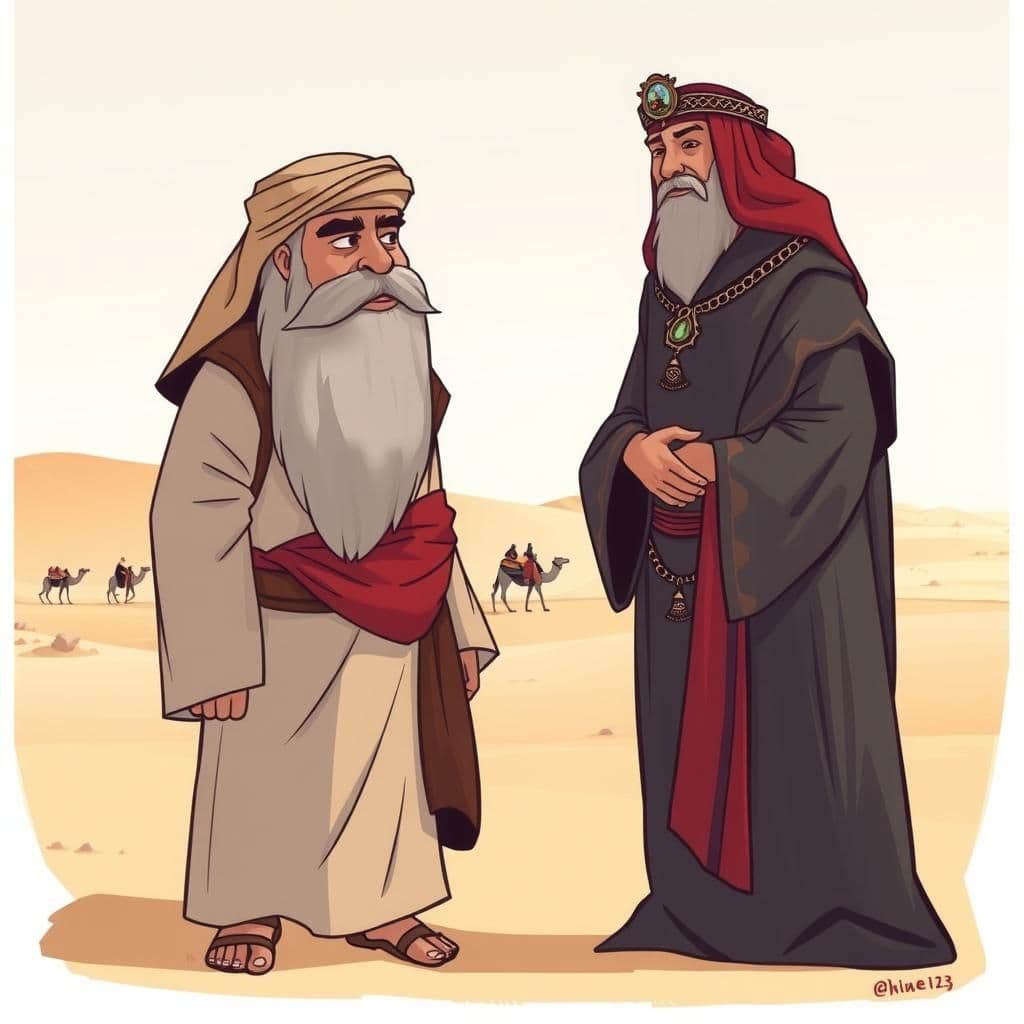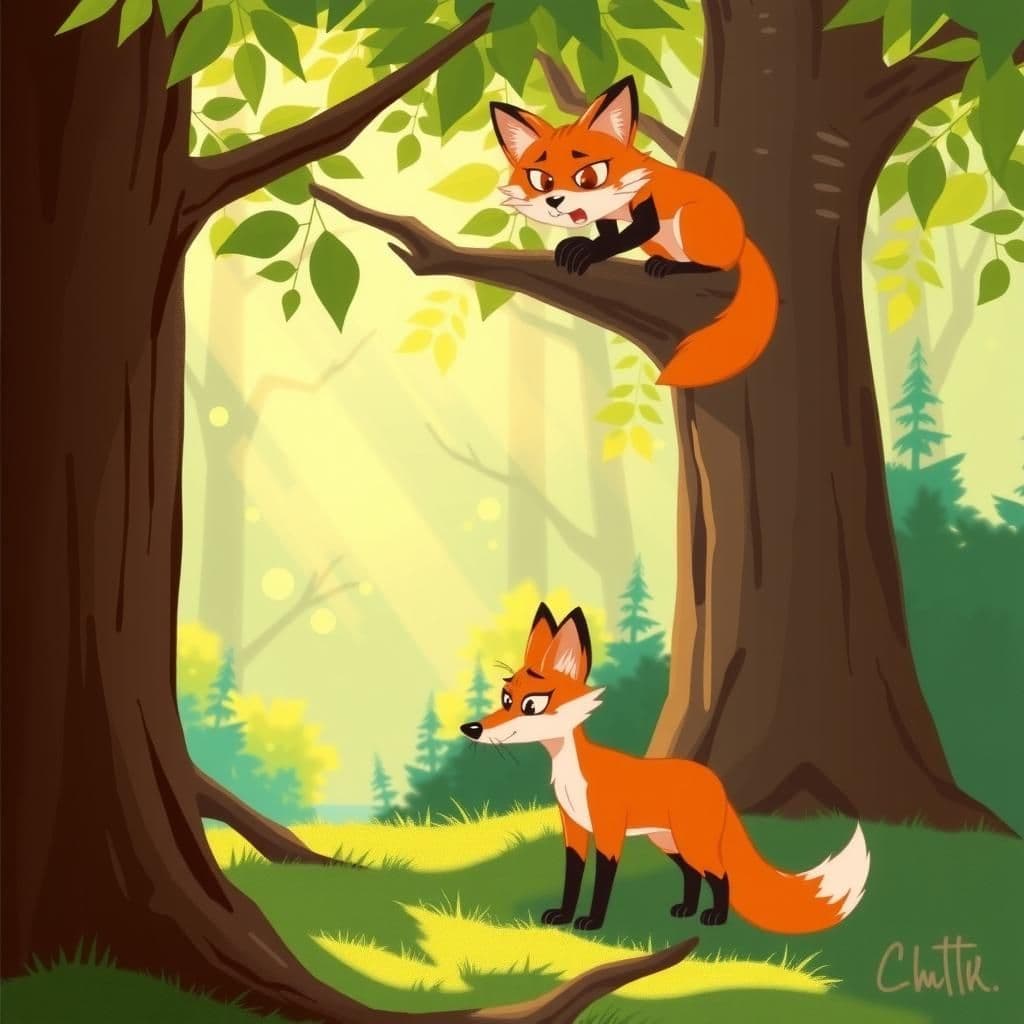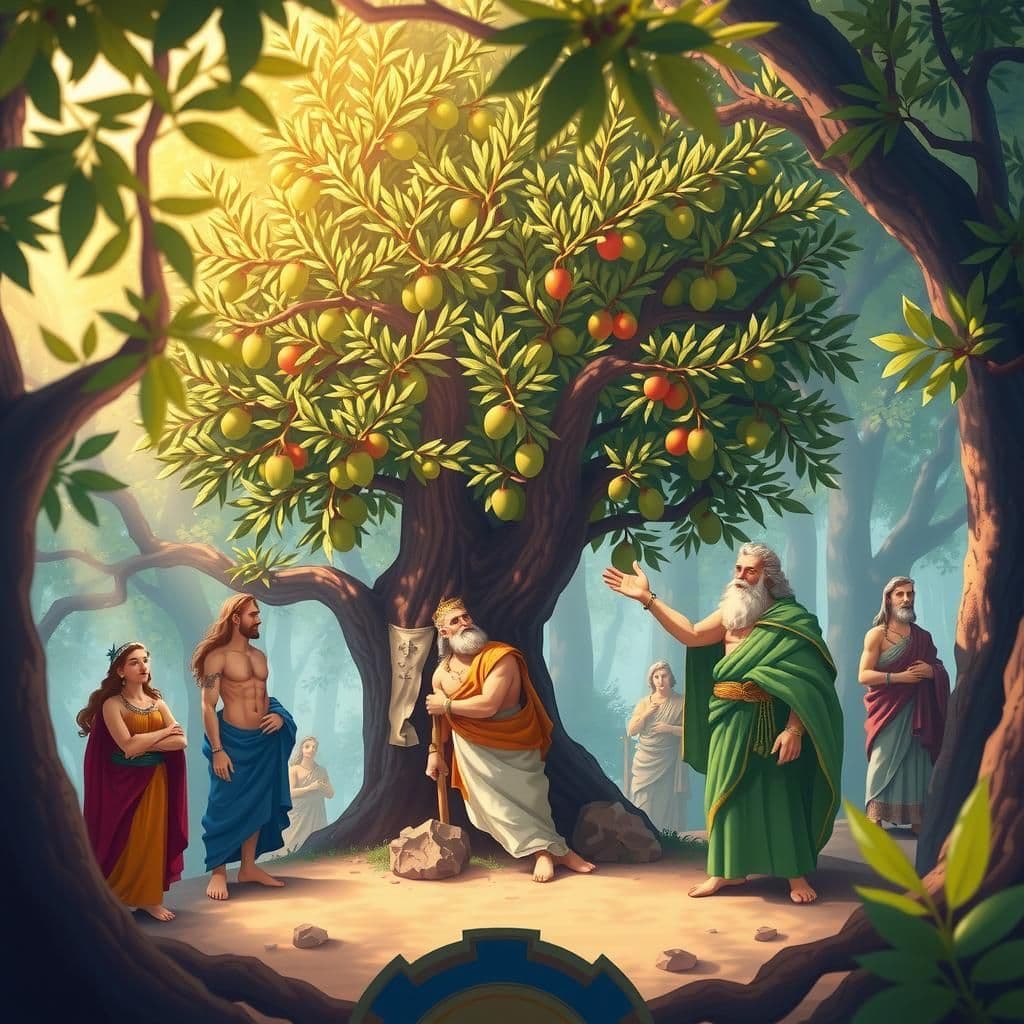The Fogy and the Sheik
In "The Fogy and the Sheik," a Fogy living near a caravan route discovers a Sheik boring for water, believing it will create an oasis that attracts caravans. The Sheik, however, warns that this could provide the Fogy with the opportunity to steal from the caravans. Ultimately, they come to a mutual understanding, exemplifying the simple lessons from stories that highlight the wisdom in recognizing different perspectives, a theme often found in well-known moral stories.

Reveal Moral
"The story illustrates that progress and innovation can bring both benefits and risks, requiring wisdom to navigate potential consequences."
You May Also Like

The Fox and the Cat
In "The Fox and the Cat," a well-known moral story from short story collections with moral lessons, a boastful Fox brags about his many tricks for escaping danger, while the pragmatic Cat relies on her single, reliable method. When a pack of hounds approaches, the Cat quickly escapes by climbing a tree, while the Fox hesitates and ultimately meets his demise. This engaging moral tale emphasizes the value of having one dependable solution over numerous uncertain options, making it a great addition to moral stories for students.

The Trees Under the Protection of the Gods
In "The Trees Under the Protection of the Gods," various deities select trees for their protection, favoring those that do not bear fruit to avoid the appearance of greed. Minerva advocates for the fruitful olive, leading Jupiter to impart a thought-provoking moral: true glory lies in usefulness, not superficial honor. This short and sweet moral story highlights the importance of impact over appearance, making it a compelling lesson on value and purpose.

The Thistles upon the Grave
In the very short moral story "The Thistles upon the Grave," a Mind Reader wagers that he can be buried alive for six months, using thistles to secure his grave against disturbances. However, after only three months, he emerges to eat the thistles, losing the bet and illustrating the folly of underestimating basic needs. This simple short story serves as a reminder that even the most clever plans can be undone by simple desires, making it a notable example among famous moral stories for class 7.